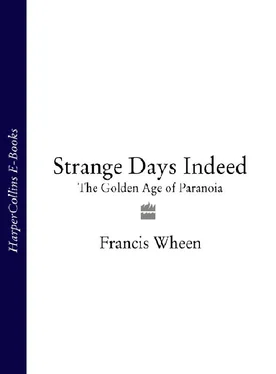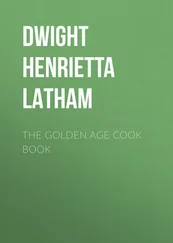Francis Wheen - Strange Days Indeed - The Golden Age of Paranoia
Здесь есть возможность читать онлайн «Francis Wheen - Strange Days Indeed - The Golden Age of Paranoia» — ознакомительный отрывок электронной книги совершенно бесплатно, а после прочтения отрывка купить полную версию. В некоторых случаях можно слушать аудио, скачать через торрент в формате fb2 и присутствует краткое содержание. Жанр: unrecognised, на английском языке. Описание произведения, (предисловие) а так же отзывы посетителей доступны на портале библиотеки ЛибКат.
- Название:Strange Days Indeed: The Golden Age of Paranoia
- Автор:
- Жанр:
- Год:неизвестен
- ISBN:нет данных
- Рейтинг книги:4 / 5. Голосов: 1
-
Избранное:Добавить в избранное
- Отзывы:
-
Ваша оценка:
- 80
- 1
- 2
- 3
- 4
- 5
Strange Days Indeed: The Golden Age of Paranoia: краткое содержание, описание и аннотация
Предлагаем к чтению аннотацию, описание, краткое содержание или предисловие (зависит от того, что написал сам автор книги «Strange Days Indeed: The Golden Age of Paranoia»). Если вы не нашли необходимую информацию о книге — напишите в комментариях, мы постараемся отыскать её.
Strange Days Indeed: The Golden Age of Paranoia — читать онлайн ознакомительный отрывок
Ниже представлен текст книги, разбитый по страницам. Система сохранения места последней прочитанной страницы, позволяет с удобством читать онлайн бесплатно книгу «Strange Days Indeed: The Golden Age of Paranoia», без необходимости каждый раз заново искать на чём Вы остановились. Поставьте закладку, и сможете в любой момент перейти на страницу, на которой закончили чтение.
Интервал:
Закладка:
There was, in short, plenty to be paranoid about. As the Rolling Stone journalist Ralph J. Gleason advised his readers: no matter how paranoid you are, what the government is really doing is worse than you could possibly imagine. A committee chaired by Senator Frank Church published a series of reports in the mid-1970s exposing illegal operations conducted by the CIA and the FBI. ‘Many of the techniques used would be intolerable in a democratic society even if all of the targets had been involved in violent activity,’ Church wrote. But these dirty tricks went far beyond that: they were ‘a sophisticated vigilante operation aimed squarely at preventing the exercise of First Amendment rights of speech and association, on the theory that preventing the growth of dangerous groups and the propagation of dangerous ideas would protect the national security and deter violence’. As Haldeman said to Nixon in 1971 after the leaking of the Pentagon Papers, which showed how the government had misled the public about the Vietnam War: ‘To the ordinary guy, all this is a bunch of gobbledygook. But out of the gobbledygook comes a very clear thing: you can’t trust the government; you can’t believe what they say.’ A year later, in a judgment which concluded that much of the FBI’s surveillance and infiltration of anti-war groups had been illegal, the US Supreme Court spoke of ‘a national seizure of paranoia’.
No wonder this was a golden age of claustrophobic conspiracy thrillers such as The Conversation, Chinatown and Three Days of the Condor . The message of Alan Pakula’s vertiginous ‘paranoia trilogy’ (Klute, The Parallax View and All the President’s Men) was that a moral sickness had infected the heart of America – families, businesses and the government itself. The shadowy, all-powerful corporation organising political assassinations in The Parallax View might once have seemed fantastical; by the time the film was released in 1974, after the ITT corporation and the CIA had been accused of helping to topple Salvador Allende’s government in Chile, it seemed all too plausible. As if to confirm that fact had outpaced fantasy, this was soon followed by All the President’s Men , an equally incredible tale which happened to be the unembellished truth. ‘What a curiosity is our Democracy, what a mystery,’ Norman Mailer said after reading the transcripts of President Nixon’s conversations. ‘No novelist unwinds a narrative so well.’ By the summer of 1973 Watergate had supplanted Coronation Street as my favourite soap opera: the daily plot twists and the rococo cast of characters – G. Gordon Liddy, E. Howard Hunt, Egil ‘Bud’ Krogh, Jeb Stuart Magruder – were far more enthralling than the chatter of Ena Sharples and Albert Tatlock over their glasses of milk stout in the Rover’s Return.
The truth was stranger than the most outlandish fiction – though there was no shortage of outlandish fiction too, including Thomas Pynchon’s Gravity’s Rainbow y Robert Anton Wilson’s Illuminatus! Trilogy and William Pierce’s The Turner Diaries , which remains an inspirational text for right-wingers who see black helicopters everywhere. These fell on fertile ground in a polity whose citizens were obliged to suspend their disbelief every time they opened a newspaper. ‘Always keep them guessing,’ Ishmael Reed said of his novel Mumbo Jumbo (1972), a post-modern conspiratorial epic about the struggle between black Americans and a secret society of Knights Templar which controls the white Establishment. That way, he explained, ‘they won’t know whether we’re serious or whether we are writing fiction’. Although it was sent to the publishers in April 1971, long before the Watergate scandal, the book included a group photo of three future Watergate conspirators – John Dean, John Mitchell and Richard Kleindienst – standing on a balcony, watching Yippies dancing in the street. Asked to explain this prophetic coup, Reed replied: ‘It’s necromancy.’
I’d prefer to call it pre-emptive paranoia. Some novelists seemed to know things that we didn’t, and a glance at their CVs strengthened that impression. E. Howard Hunt, who organised the Watergate burglary, was not only a veteran spook but also a prolific author whose first book, East of Farewell (1942), was praised by the New York Times as ‘a crashing start for a new writer’. * During his two decades as a CIA officer, in spare moments between overthrowing the Guatemalan government and planning the invasion of Cuba, he wrote more than thirty spy thrillers, each of which had to be submitted to his superiors for vetting. ‘I made a conscientious effort to fudge details, blurring locations and identities so they couldn’t be recognised,’ he recalled, but sometimes a scene would be censored ‘and I’d learn that some episode I thought I’d made up from whole cloth had described an actual operation – one that I’d never heard about’. In his novel On Hazardous Duty (1965) he even managed to describe the Watergate break-in, a full seven years before the event:
The agent who had planted the mike in the target office had tested the key, so the first barrier would yield. But the lock on the office door was a later model – pin and tumbler – and they would have to make its key on the spot … ‘All right,’ Peter said curtly, ‘I don’t want heroes, just the contents of the safe.’
Necromancy again – or simply a self-fulfilling paranoid prophecy by a man who was described in his New York Times obituary as ‘totally self-absorbed, totally amoral and a danger to himself and anybody around him’?
In his classic lecture on ‘The Paranoid Style in American Politics’, delivered only a few days before the assassination of President Kennedy in November 1963, the historian Richard Hofstadter traced the lineage of that style from early anti-Masonism and anti-Catholicism through to McCarthyite anti-Communism in the 1950s. ‘I call it the paranoid style,’ he said, ‘simply because no other word adequately evokes the qualities of heated exaggeration, suspiciousness and conspiratorial fantasy that I have in mind.’ He was not using the phrase in a clinical sense, merely borrowing a clinical term for other purposes:
I have neither the competence nor the desire to classify any figures of the past or present as certifiable lunatics. In fact, the idea of the paranoid style would have little contemporary relevance or historical value if it were applied only to people with profoundly disturbed minds. It is the use of paranoid modes of expression by more or less normal people that makes the phenomenon significant. When I speak of the paranoid style, I use the term much as a historian of art might speak of the baroque or the mannerist style. It is, above all, a way of seeing the world and of expressing oneself.
His theory rested on two assumptions: that the conspiracy theorists were dangerous and deluded; and that in America they were almost invariably ‘extreme right-wingers’ such as the John Birch Society, which had denounced President Eisenhower as ‘a dedicated, conscious agent of the Communist conspiracy’. In a published version of his lecture a couple of years later, Hofstadter wrote in a footnote that ‘conspiratorial explanations of Kennedy’s assassination have a far wider currency in Europe than they do in the United States’.
He spoke too soon. Even in the US, perhaps especially in the US, by the end of the Seventies the Kennedy assassination had spawned a vast shoal of conspiratorial literature and obsessive investigations. As more light was shed on the devilish schemes concocted inside the HQs of corporations and government agencies (those nameless, featureless office blocks that loom so forbiddingly in many Seventies films), the paranoid style became almost the default mode of thinking: it seemed a reasonable working assumption that there was indeed a clandestine collusion between vested interests which thought themselves above the law. If the Central Intelligence Agency had tried to bump off President Fidel Castro in the 1960s, then why not President John F. Kennedy? ‘I was very paranoid about the CIA,’ Norman Mailer recalled, ‘and so I thought it perfectly possible that the CIA had pulled it off.’ Or perhaps the Mafia, given that the Church committee listed the many phone calls made by JFK to Judith Campbell Exner, who was also the lover of the leading mobster Sam Giancana? As Mailer admitted: ‘Like most conspiratorialists, I wanted there to be a conspiracy.’
Читать дальшеИнтервал:
Закладка:
Похожие книги на «Strange Days Indeed: The Golden Age of Paranoia»
Представляем Вашему вниманию похожие книги на «Strange Days Indeed: The Golden Age of Paranoia» списком для выбора. Мы отобрали схожую по названию и смыслу литературу в надежде предоставить читателям больше вариантов отыскать новые, интересные, ещё непрочитанные произведения.
Обсуждение, отзывы о книге «Strange Days Indeed: The Golden Age of Paranoia» и просто собственные мнения читателей. Оставьте ваши комментарии, напишите, что Вы думаете о произведении, его смысле или главных героях. Укажите что конкретно понравилось, а что нет, и почему Вы так считаете.












